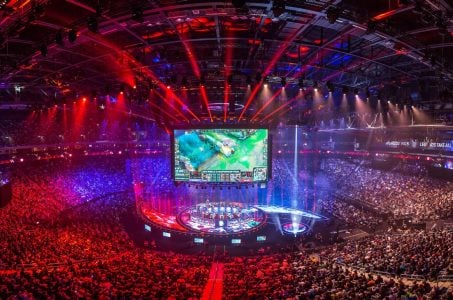Six CS:GO Players Arrested in Australia Over Esports Match-Fixing Racket Face Ten Years in Prison
Posted on: August 26, 2019, 06:50h.
Last updated on: August 26, 2019, 12:06h.
Australian police have arrested six individuals on suspicion of deliberately throwing Counter Strike: Global Offensive (CS:GO) matches in an attempt to profit from the esports betting markets.

The Guardian reports that the names of those detained have not been disclosed, nor the amount wagered. But investigators said they identified 20 bets placed over five matches that they believe were illegal.
The individuals, all aged between 19 and 22, have been charged with engaging in conduct that corrupts a betting outcome, and the use of corrupt conduct information for betting purposes – offenses that each carry up to ten years in prison.
While this is the first investigation into esports match-fixing in Australia, it is just the latest in a string of scandals to hit competitive video gaming over the past few years.
Advertising revenues from esports are booming. A recent report by gaming analytics firm Newzoo suggested they could hit $1.1 billion globally this year, a 27 percent increase on 2018. Despite the resulting boost to prize money, esports still has an integrity problem.
Life in the Lower Leagues
On Sunday, Europe’s OG Dota won the Dota 2 International championship for the biggest prize in esports history, $15.6 million.
But away from its biggest stages — its sold-out arenas where players compete for millions — prize money is low and viewership is small, making match-fixing tempting for some. Even at its highest echelons, prize money can be top-heavy, which could encourage players to manipulate matches as a way of mitigating risk.
While most major bookmakers offer markets on esports, much of the betting liquidity is hard to detect, because it flows though unregulated markets — often “skin gambling” sites, which are based on the trading of digital in-game items, such as the “skins” weapons in CS:GO.
Meanwhile, esports is a fractured market, with no single governing body, which makes it difficult to put up a united front against corruption.
In January 2018, the 2014 StarCraft world champion Lee “Life” Seung Hyun was sentenced to 18 months in prison, suspended for three years, fined $60,000, and stripped of his titles for throwing matches at the behest of a shadowy Asian gambling syndicate.
Bookie Tipoff
Victoria police assistant commissioner Neil Paterson said that his department launched the Australian investigation following a tip from a licensed betting operator that had spotted suspicious wagering patterns.
Esports is still relatively young in Australia, and fails to attract the big sponsorship dollars of the US, Asian, and European scenes. Market researcher Ibis World has projected Australia’s cut of the global esports revenue haul will be just $20 million this year.
Nevertheless, Paterson said corruption would not be tolerated in the country.
Esports is really an emerging sporting industry, and with that will come the demand for betting availability on the outcomes of tournaments and matches,” he said. “It’s important that police and other agencies within the law enforcement, gaming and betting industries continue to work together to target any suspicious activity.”
“These warrants also highlight that police will take any reports of suspicious or criminal activity within esports seriously, and we encourage anyone with information to come forward,” he added.
Related News Articles
Lucky Man Hits Virtual Horse Racing Miracle After Ungreedy Act at ATM
Most Popular
LOST VEGAS: ‘Tony The Ant’ Spilotro’s Circus Circus Gift Shop
Las Vegas Overstated F1 Race’s Vegas Impact — Report
Mega Millions Reportedly Mulling Substantial Ticket Price Increase
Las Vegas Strip Stabbing Near The Strat Leaves One Man Dead
Most Commented
-
End of the Line for Las Vegas Monorail
— April 5, 2024 — 90 Comments -
Mega Millions Reportedly Mulling Substantial Ticket Price Increase
— April 16, 2024 — 8 Comments -
Long Island Casino Opponents Love New York Licensing Delays
— March 27, 2024 — 5 Comments
















No comments yet